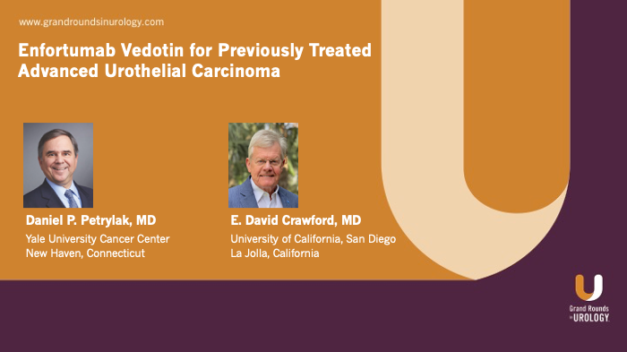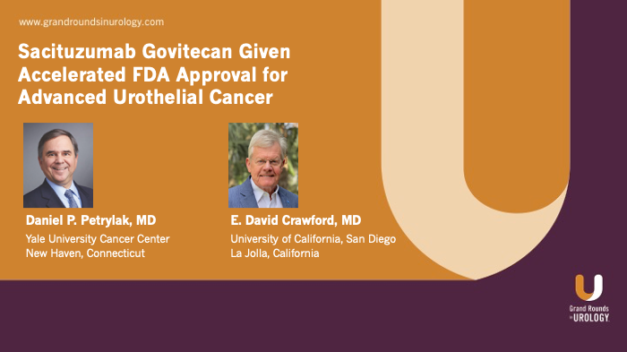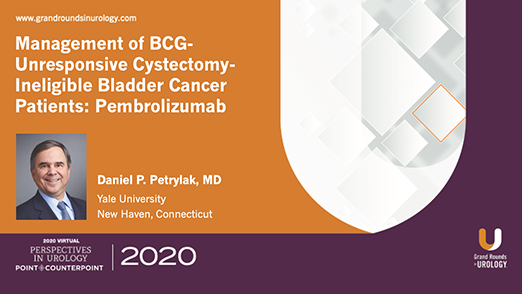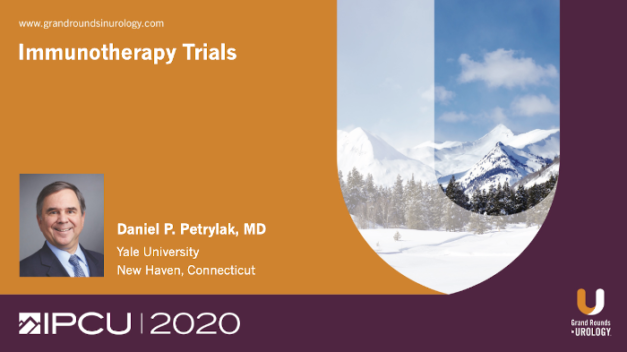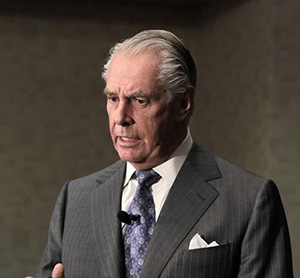Enfortumab Vedotin for Previously Treated Advanced Urothelial Carcinoma
Daniel P. Petrylak, MD, Director of Genitourinary Oncology, Professor of Medicine and Urology, Co-Leader of Cancer Signaling Networks, and Co-Director of the Signal Transduction Program at Yale University Cancer Center, summarizes his article on the EV-301 study of enfortumab vedotin and its role in making the drug a standard treatment option for patients with urothelial cancer. In 2012, Dr. Petrylak began working on a phase 1 trial of enfortumab which found that the drug had about a 40% response rate in patients with or without checkpoint surgery. He then worked on the EV-201 phase 2 trial, which found about a 40% response rate in patients previously treated with either a platinum-based chemotherapy or checkpoint inhibitor. Dr. Petrylak also worked on the phase 3 study (EV-301), which randomized patients to receive either enfortumab vedotin or standard chemotherapy and found significant overall survival benefits as well as a response rate of about 40% in the enfortumab arm. By confirming phase 1 and phase 2 data, this study earned enfortumab vedotin accelerated FDA approval. Dr. Petrylak does note that the drug has some side effects, including neuropathy and rashes. The video ends with a question and answer session conducted by E. David Crawford, MD, Editor-in-Chief of Grand Rounds in Urology. Drs. Petrylak and Crawford discuss plans to use enfortumab vedotin earlier in the treatment process, and Dr. Petrylak observes that many studies are working on exactly that, including one looking at using enfortumab with pembrolizumab as a first-line treatment.
Read More
